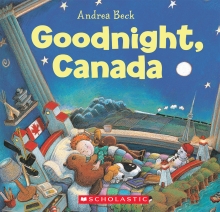
Another book in the cross-cultural parenting practices genre. This was my least favourite one. In any parenting book there is always an agenda: how will reading this book make you a better parent?
In Bringing up Bébé, the message I took from it was that complete self-sacrifice for the sake of your child is unhealthy for both you and the child.
When I read How Eskimos Keep Their Babies Warm, it started to dawn on me that some of the difficulties and frustrations I have with parenting are not inherent to the process of raising children, but are very much a part of the way my culture deals with raising children. In a way it is both hopeful and depressing because there are many societal influences on raising children that are beyond our control.
Parenting Without Borders seemed to focus a lot of using scientific studies to confirm that other specific parenting practices around the world are superior to those that are used in America. “Superior in what way?” You might ask yourself. Well, the book jacket tells us that this book will offer “research-based insight into which strategies can help us improve our own children’s chances.” By this I think is meant their chances at doing well in the global marketplace.
And this is the point at which every parent should stop and ask themselves: what is my goal in parenting? Do I believe that society is so competitive that I need to focus on doing everything I can to boost my child’s IQ? Or do I believe that (HERE COMES MY CHRISTIAN BIAS) God will provide and the goal of parenting is to encourage my child’s appreciation of life and their integration into the family unit in a happy and harmonious way that doesn’t necessarily prioritize them above the other thinking/feeling members of the family? (Okay we do prioritize RJ above the cat though).
Christine Gross-Loh focuses a lot on Japan in this book because she has spent time living there. She also talks about a few other countries. Unlike in How Eskimos Keep Their Babies Warm, she provides very little detail about how the concepts in this book have affected her own parenting. The result is a book that replaces that personal memoir quality with descriptions of scientific studies, making it drier and less relatable than Eskimos.
Overall though, this book did have some interesting information in it. One stand-out part for me was its discussion of education in Finland. By international measurements, Finnish students perform much better than American students. They also have shorter schooldays, no homework or grades until grade 11, more recess and teachers all have Master’s degrees and more autonomy over the classroom curriculum.
Although I find the attitude of emulating other cultures so we can be more “successful” a bit suspect, I read this book cover to cover. Would I recommend it to a friend? If you’ve already read Bringing up Bébé and How Eskimos Keep Their Babies Warm and are still craving something in this genre, then yes, I would. But it’s not as good.




